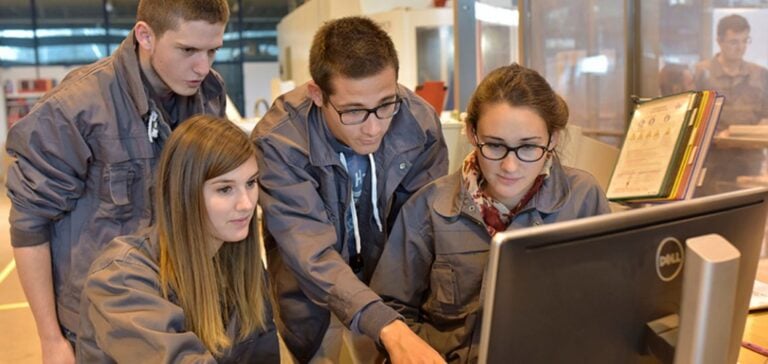Engineering schools in France are increasingly turning to low-tech techniques, an approach opposed to high-tech, to meet environmental and sustainability challenges. Low-tech, a concept born in the 1970s, advocates the use of simple, repairable and resource-efficient objects. This philosophy is gaining ground at institutions such as Lyon’s Institut national des sciences appliquées (INSA), Centrale Nantes and Grenoble INP. Engineering education and research in France have been revitalized in recent years, as evidenced by the innovations of FC Lab Belfort.
A New Approach to Training
Students at engineering schools are trained to design functional, resource-efficient objects. For example, Centrale Nantes students have been working on the design of a catamaran using simple technologies, and will soon be looking at housing in rural areas. At INSA Lyon, 88 students are taking an option dedicated to low-tech, where they learn to make and repair objects using basic materials.
Advantages of Low-Techs
This approach has many advantages. It enables future engineers to question the level of technical skill required to make an object work, thus promoting more sustainable and accessible solutions. What’s more, this training puts the user at the center of thinking, unlike the traditional culture of expertise, which concentrates knowledge in the brains of a few.
Challenges and opportunities
Despite the advantages of low-tech, there are still questions about the opportunities for young engineers. According to Romain Colon de Carvajal, lecturer at INSA Lyon, the job market is not yet fully receptive to this new approach. However, Ilan Vermeren, a Centrale Nantes graduate, has observed a growing interest from companies, citing opportunities such as a position with an Airbus subsidiary.
An international dimension
Low-tech is not just a French phenomenon. A European project associates French schools with the University of Mons in Belgium and the Dublin University of Technology. These techniques are also finding their place in developing countries, offering durable, robust solutions adapted to less industrialized contexts.
The integration of low-tech into engineering schools represents an innovative and necessary response to today’s ecological challenges. This approach favors sustainable and accessible solutions, while preparing future engineers for resource-constrained environments. As corporate interest in these skills grows, this trend could transform industrial practices worldwide.






















